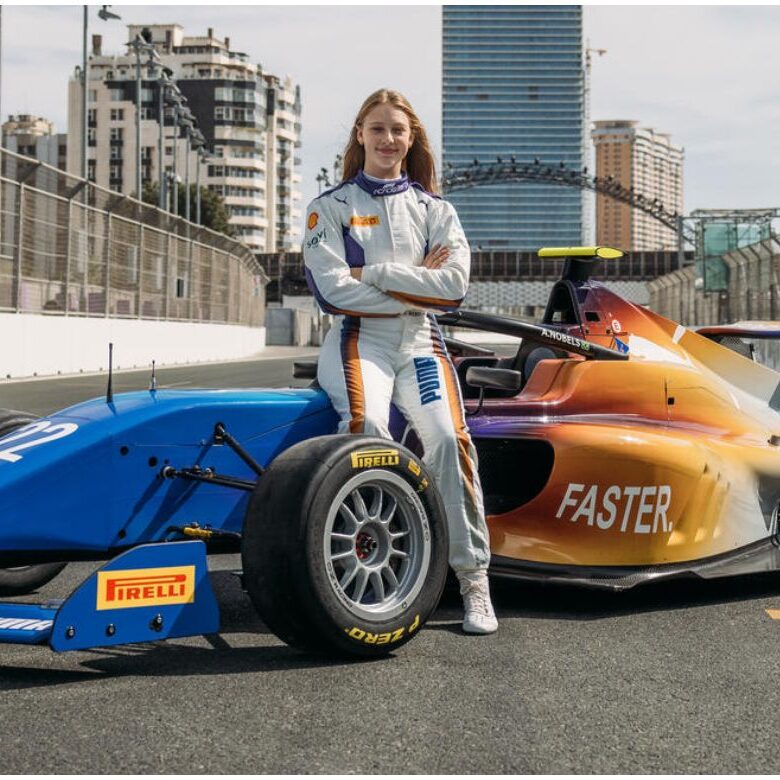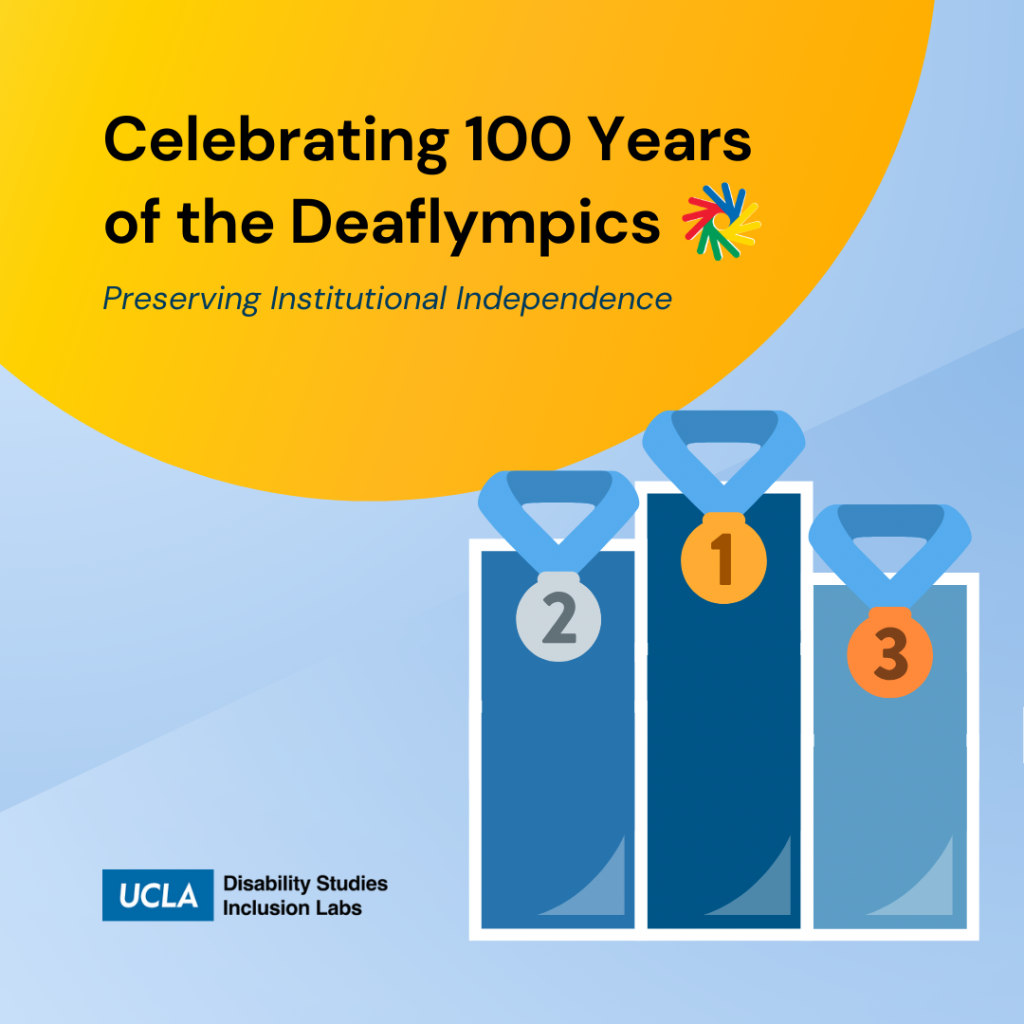See the original post on UCLA Alumni.
At age 7, Scout Bassett was the last person you’d expect to become an internationally renowned athlete. But just a few years later, the girl with one leg who had never been outside would surprise everyone — including herself.
Can you start by talking a little about your years before UCLA?
I’m from a small town in northern Michigan called Harbor Springs, a town of roughly 1,600 people. I felt like the world was so small. I realized that when I was about to go to college, I wanted to experience something very different from where I grew up to broaden my horizon, see the world. I knew I wanted to go to a big school where I could experience new things. Harbor Springs is a conservative town, and I felt like I grew up with a sheltered upbringing. College for me was a chance to see the rest of the world. Right before my senior year of high school, my dad announced to the family that he got a new job offer and we were moving to Palm Desert, Calif. I didn’t even know where that was at the time. I grew up with Michigan winters; I couldn’t imagine living in the desert.
My high school years were very academically focused. If it weren’t for sports, I’d be the typical awkward nerd. I knew that if I wanted to go to a school like UCLA or Stanford, I had to be the best. I also knew I couldn’t go to college out of state unless I got a scholarship. Going to a new school for one year (my senior year) was scary and a little traumatic. I had gone to three different high schools — I just wanted to settle down and find my place.
How did you feel when you found out you were accepted to UCLA?
To be honest, UCLA was not my top choice. What sealed the deal for me was my visit to the campus shortly after I was accepted. It was magic. I could see myself going to college here, in the dorms, going to basketball games, attending class. This campus is so beautiful, including the surrounding area. After moving high schools so much, it was important and reassuring to finally find a place to call home.
What experiences from your UCLA years stand out the most?
My experience in Residential Life was a big part of my college experience. I was an R.A. for two years, and then I worked my last year in off-campus housing. I did a lot of programming during my second year as an R.A. and I felt like my residents really embraced me. I loved hearing about their life journeys and learning about what made each student so different. Coming from a small town, this was absolutely refreshing.
How did your experience at UCLA change you?
I witnessed so much greatness each day on campus. UCLA opened my eyes to a bigger world, a world with many needs that were unmet. I saw that need, and it motivated me not to just live life but to live life for someone else. You’re just a student but you have an opportunity to affect other peoples’ lives. I loved that there are other like-minded students at UCLA who are working together to make an impact.
What did you find most challenging?
High school felt easy for me. I had no idea what UCLA would be like. I felt academically challenged and I also felt challenged outside of the classroom. I felt challenges in my values and beliefs. Growing up in a conservative community, the liberal nature of UCLA was very unsettling for me at first, maybe even a bit uncomfortable. Instead of rejecting other viewpoints which is so easy to do, I took the opportunity to learn and gain as much understanding as I can. I learned that you cannot have an impact on this world if you cannot understand people, see their point of view, where they are coming from. I might not necessarily agree with all other viewpoints, but I’m going to take a moment to try and understand it. I became a much more tolerant person and learned how to love people despite our differences; I learned to love people for their differences.
How did you train for your first triathlon?
My senior year of high school I realized I wanted to be active and stay active in college — really I was motivated by my desire to not gain the Freshman 15! Senior year I started going to the Challenged Athletes Foundation’s (CAF) clinics and programs, and someone there suggested that I participate in triathlons. I didn’t know how to swim or how to ride a bike at the time. During my senior year of high school, I did my first triathlon, the UCLA Iron Bruin Triathlon. From there, I went to the World Championships in Hamburg. I never thought I’d be a competitive athlete, I just wanted to stay active. And now I love competing and training as an athlete.



What is it like working with children who are amputees?
For the past five years, I’ve been a spokesperson for CAF. I want to say that I’ve accomplished a lot, but being involved with CAF has been the most significant thing I’ve done with my life. You wouldn’t know it now, but I really struggled in sports when I was younger. I was the kid that didn’t get to play in the games. My soccer coach told me to kick the ball by myself during practice.
I participated in sports to overcome those social and cultural barriers that affected me when I came to the States. What I found was that it magnified my disabilities. More than the physical struggles, it was the mental struggles that I battled with. I felt marginalized. I can’t even tell you the number of times I wanted to quit the basketball team or the soccer team. Sports was always a struggle.
I got involved with CAF when I was 14 years old, at a track and field event in Orlando, Fla. It was the first time I ever ran. I ran with a prosthetic, but it wasn’t customized for me. My involvement with CAF changed me from the inside out. I no longer felt marginalized. I didn’t feel like the ugly duckling. It’s so important for me to give back to CAF since they have given me so much. We do clinics where we bring together amputees and teach them how to run for the first time. I love meeting kids at the clinics — I see so much of myself in them. I know what it’s like to grow up as an amputee, and I want to show them that there is nothing they can’t achieve or do in their life. I want to show them that the physical limitations don’t affect their goals and dreams.
You recently posted on Facebook: “Your past does not define you — destroy you — deter you — or defeat you. Let it strengthen you!” What does that mean to you?
I was in a fire when I was a baby. Shortly afterwards I was dropped off at the Nanjing orphanage in China. In seven years there, I have no memory of going outside. It was an extremely isolating time in my life. I didn’t have a prosthetic; they made one for me using nuts and bolts and a belt, things you would find in your garage. The foot was a piece of plastic that was taped on with masking tape. It was cumbersome, and my mobility was just as limited with it. I was lost; even as a young kid I wondered if anything would come of my life. I had no formal education until my adoptive parents brought me to the States at age 7. But I wouldn’t change anything that happened — look at what I’ve overcome. I’m stronger for these experiences and I know that there is nothing that I can’t conquer.
What are your plans for the future?
My goal is to make the Paralympic Games in 2016 in Rio. I didn’t qualify in 2012, and it was heartbreaking. I’ve learned that failure has the power to defeat you, or it has the power to push you forward. In the past few years, I’ve pushed myself harder than ever. I’ve broken the 400 meter Paralympic world record for my class and just a couple weeks ago, I broke the American record for the 200 meters. I do four track and field events: the 100m, 200m, 400m and the long jump. I think one thing people don’t realize about Paralympic athletes, especially those in the U.S., is that we receive so little funding. Our dreams are self-funded. Because of this, I do have to work outside of training full time. I do have to find my own sponsors. I don’t intend to go to Rio just to join the team. I’m going there to get a medal. Anything short of that is not acceptable. That’s my goal and I’m working towards that. Now in the years approaching the game, another goal and desire is to raise the awareness level and the platform of Paralympic athletes in the U.S.
What changes do you hope to see in the para-athlete world?
Our para-athletes aren’t on the billboards or in the media much. But it’s changing quickly. NBC has committed to broadcasting the Paralympic events in Rio. We train just as hard, if not harder, than any other Olympian. The pain that our body endures from using adaptive equipment is incalculable. The focus shouldn’t be on our disabilities but on our capabilities. There is sometimes too much focus on the prosthetic, but ultimately the one thing that makes a para-athlete an athlete is the same motivation for all athletes.
How do you foresee UCLA playing a role in your life in the future?
UCLA has given me and taught me so much, I think I grew more during that time than any other period in my life. I’d love to give something back. I’ve always had the desire to bring our mobility clinics to UCLA. I’d love to make that happen. Being able to do this would bring it full circle for me.
If you have recommendations of other UCLA young alumni doing extraordinary things, please contact youngalumniprograms@support.ucla.edu.



